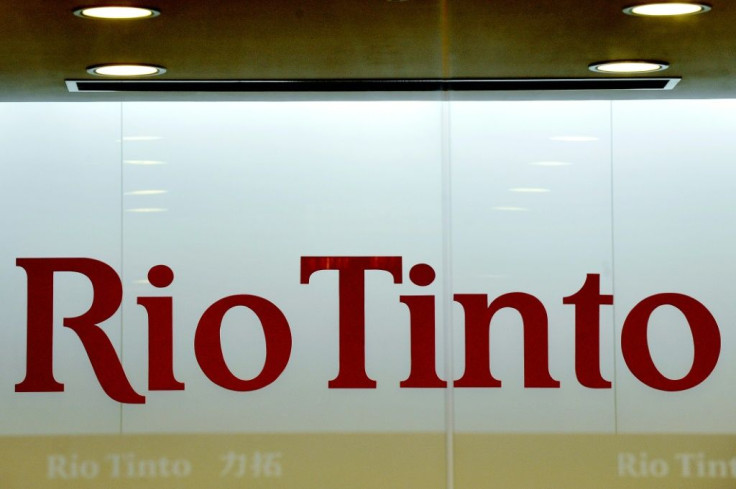Rio Tinto Hit With Human Rights Claims Over Bougainville Mine
Rio Tinto is facing accusations it "side-stepped" responsibility to clean up poisonous waste from a closed mine on Papua New Guinea's Bougainville island in a complaint filed Tuesday in Australia.
The complaint, lodged with Australian authorities by the Melbourne-based Human Rights Law Centre on behalf of more than 150 Bougainvilleans, heaps more pressure on the mining giant already under public attack for blowing up sacred Aboriginal sites.
It alleges the former Panguna copper and gold mine, which was at the centre of a decade-long civil war in PNG, continues to leak waste into rivers more than three decades after it was shuttered.
"Our rivers are poisoned with copper, our homes get filled with dust from the tailings mounds, our kids get sick from the pollution," a traditional landowner and member of local parliament, Theonila Roka Matbob, said in a statement.
When it operated between 1972 and 1989, Panguna was one of the South Pacific's largest mines for copper and gold but anger among locals over the environmental damage and distribution of profits triggered an uprising that forced its closure.
The ensuing civil war left up to 20,000 people dead and led to a peace agreement opening the way for possible Bougainville independence.
In 2016 Rio divested from the mine, passing on its shares to the Papua New Guinea and Bougainville governments, in a move locals say allowed the miner to entirely avoid the costs of clean-up.
"These are not problems we can fix with our bare hands. We urgently need Rio Tinto to do what's right and deal with the disaster they have left behind," Matbob said.

The complaint alleges the Anglo-Australian company failed to mitigate the risks posed by billions of tonnes of mining waste that have turned riverbeds blue and caused health problems for more than 12,000 people living downstream.
It urges the Australian government to bring the miner into negotiations with locals and investigate the situation if talks fall through.
Keren Adams, legal director at the Human Rights Law Centre, compared the miner's inaction over the Bougainville mine to the destruction in May by Rio Tinto of 46,000-year-old Aboriginal sites at the Juukan Gorge in Western Australia.
"As we saw at Juukan Gorge in Australia and we see here in Bougainville, there is a total disconnect between Rio Tinto's rhetoric and the reality experienced by Indigenous communities," Adams said.
"If Rio Tinto is serious about learning lessons, it needs to listen to communities and take responsibility for the human impacts of its activities."
Speaking to the Sydney Morning Herald, Rio Tinto said it was willing to enter into discussions with Bougainville locals following the complaint.
"We are aware of the deterioration of mining infrastructure at the site and surrounding areas, and claims of resulting adverse environmental and social, including human rights, impacts," a spokesman told the newspaper.
The firm blasted rock shelters in the Juukan Gorge in Western Australia's remote Pilbara region on May 24, destroying one of the earliest known sites occupied by Australia's indigenous people.
The backlash sparked by the destruction, which was described by traditional owners as a "shocking act of corporate vandalism", led to the resignations earlier this month of Rio Tinto's CEO and two top lieutenants.
© Copyright AFP 2024. All rights reserved.





















